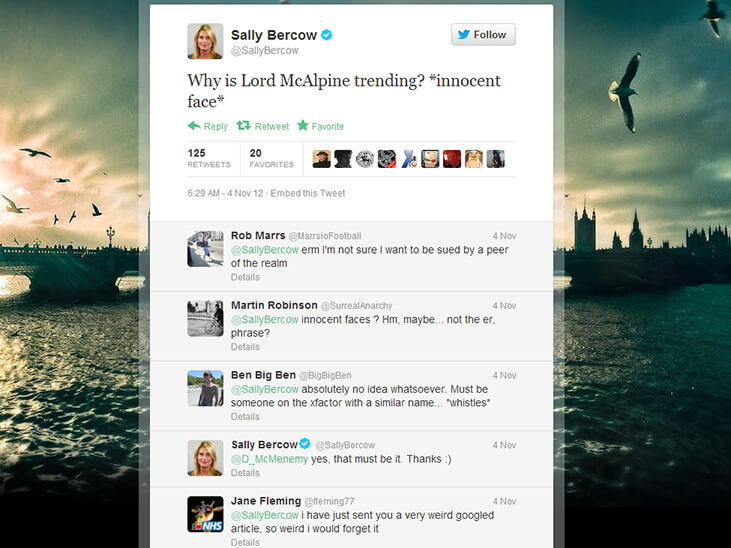Have you ever wondered if what you publish online could get you into trouble? If you get familiar with Australian legal boundaries, you can avoid the potholes and run wild with your words. Just not this wild:

Last month, the UK High Court found that the tweet had defamed Lord McAlpine by implying that he was a paedophile. It was all about timing and context – Sally Bercow had sent the tweet after a television show had falsely accused McAlpine of potentially being a suspect in an investigation into an unnamed high profile politician’s sex scandal.The above tweet constitutes balderdash for most Australians, but those seven words are likely to cost a British politician’s wife more than £100,000.
The case represents a breakthrough in the relationship between social media and law, and is a reminder of the gravity of our own online emissions. While a few paragraphs here and there when creating content for clients can seem innocuous, you’re putting your clients at risk if you don’t have a basic idea of what you can and can’t say online.
So if you can be liable for something so simple as an *innocent face*, how can you protect yourself and your company on social media – without ridding yourself of all personality?
There’s no need to throw your unique voice out the window to avoid legal quagmires, as long as you know where the line is drawn:
It could be defamation even if the facts are true: it’s what the facts imply that matters.
If you post on Facebook that you heard Lord McAlpine loves the Boy Scouts, that may be true. But the imputation – that he loves them for the wrong reasons – is false.
It could be defamation even if you don’t name a person specifically.
In 2009, British singer Lily Allen had to change the name of an aggressive song about a public figure she calls racist and homophobic; it was originally called GWB. He’s not named, but it’s easy enough to figure out which former American president she’s referring to:

It could be defamation even if you’re just quoting someone else.
If you’ve ever wondered why customer testimonials on websites usually shouldn’t include anything negative about rival companies, this is it.
It could be defamation even if it isn’t spelt out in words.
Defamatory content can be written, spoken, illustrated, or gestured. As ABC Breakfast’s news presenter demonstrates effectively, there is indeed such a thing as a defamatory gesture:
You’re not liable if you defame a company with more than 10 employees.
So you’re copywriting for a sandwich shop and you’d like to blog about your clients’ large rival companies. Unless you name any individuals, you can’t be sued for saying your client offers a better experience than Subway’s poor service. The exception to this rule is non-profit organisations.
If you use a third-party platform to publish defamatory content, you’re not liable…sort of.
As the law currently stands in Australia, if someone has a problem with what you say on Twitter or Facebook, it’s those platforms that get dragged to court and not you. It’s an historical quirk of our legal system that’s likely to be ironed out sooner or later, so it’s still important to watch your words there.
If the public is able to read things you write, you need to know the relevant law. And because the law is constantly evolving, it’s important to stay on top of legal developments, even in other jurisdictions. This is just a small part of the law as it applies to online copywriting; have a read of some other resources to be confident that your marketing won’t get anybody in trouble.

Comments (0)